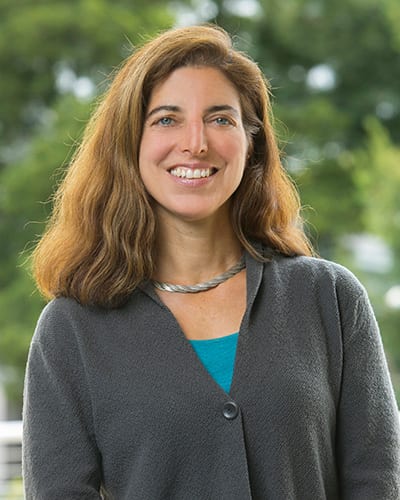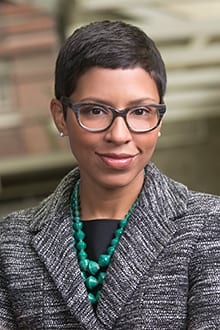By Leslie Gordon and Susan Gluss

Berkeley Law scholars have submitted amicus briefs in the biggest abortion rights case brought before the U.S. Supreme Court in two decades. Prior to the sudden death of Justice Antonin Scalia, experts had predicted a split of five-four in the case. Justice Kennedy was expected to provide the swing vote—for or against stiff abortion restrictions—with Scalia leading the conservative bloc.
“There is little doubt in anyone’s mind that Justice Scalia would have ruled in favor of upholding the abortion restrictions in Texas. The loss of his vote, however, does not signal an automatic win for the clinics challenging the restrictions,” said Jill Adams, executive director of the Center on Reproductive Rights and Justice (CRRJ) at Berkeley Law.
In Whole Woman’s Health v. Cole, the Court will review provisions of Texas’ House Bill 2, commonly known as HB2, which imposes several restrictions on abortion access.
Per HB2, all Texas abortion facilities must upgrade to hospital-like standards and physicians performing abortions must have admitting privileges at a hospital no more than 30 miles away from the abortion facility. So sweeping are these provisions that many facilities will be unable to comply and will be forced to close, leaving, by some accounts, 10 or fewer abortion clinics in Texas, the nation’s second most populous state.
“This is a seminal case, the biggest abortion rights case in at least 20 years, with the potential to dictate the terms of state-level restrictions,” said Adams.
“If the Court were to split four-four, the Fifth Circuit Court of Appeals ruling would stand, leaving the regulations in place and shuttering more clinics in Texas. However, such an outcome would not have the same nationwide implications as a majority opinion,” she added, “because other circuit court rulings, including those striking down similar regulations, would also stay in place.”
Claudia Polsky, director of Berkeley Law’s Environmental Law Clinic and a signatory in another brief in the case, summarized the possible outcomes:

“Now, there are three scenarios: a four-four vote, which would uphold Texas’s restrictions on abortion clinics; a five-three reversal, if Justice Kennedy votes with the liberals; or a Court decision to postpone resolution of the case until a ninth justice is confirmed. Both before and after Justice Scalia’s death, there is tremendous uncertainty as to outcome, and it mostly boils down to Justice Kennedy’s vote.”
The briefs
Adams’ amicus brief argues that states cannot adopt measures that degrade pregnant women’s lives, health and fundamental liberties in the name of protection. It also argues that state laws that, for no legitimate health or safety reason, create substantial obstacles to women seeking abortions in safe medical settings create the additional danger that those women will be arrested and punished.
“If these Texas provisions are upheld, it will result in women not being able to obtain abortions, being forced to get an abortion outside of clinical settings or, if they choose self-administered abortions, being vulnerable to threat of arrest. The provisions have the effect of eliminating the abortion rights of broad swaths of people, especially low-income, rural and immigrant communities, all of which are disproportionately people of color,” Adams said.
Professor Melissa Murray wrote a different amicus brief in Cole, along with professors from Harvard and Case Western Reserve University law schools and Daralyn Durie ’92 and others from the Durie Tangri law firm in San Francisco. Their brief argues that Texas’ provisions specifically target abortion, a procedure available only to women, rendering women unequal in the eyes of the law.

The brief further argues that the restrictions unduly impose both material and dignitary burdens on a woman’s right to an abortion in violation of the Constitution.
“In the last couple of years, there have been efforts to roll back access to abortion, a constitutionally protected right, subjecting it to so many regulations as to effectively take it away. This is a pivotal moment,” added Murray, faculty director of the CRRJ.
Polsky was one of 113 women attorneys who shared their personal abortion stories in a separate Cole amicus brief. Along with the Paul, Weiss, Rifkind, Wharton & Garrison law firm, Polsky helped gather other women lawyers to share their own stories.
“The participants were willing to put their own families in the spotlight to combat the stigma surrounding abortion. They viewed the brief as an opportunity to move an important public conversation,” Polsky said.
A constitutional right
In the 1992 decision Planned Parenthood v. Casey, the U.S. Supreme Court noted that the right to “participate equally in the economic and social life of the nation” was guaranteed by the Constitution. The signers to Polsky’s brief argue that their ability to participate equally in the economic and social life of the nation—namely, by working in the legal profession—was influenced by their ability to obtain an abortion.
Signers to Polsky’s brief include partners from Morrison & Foerster and Fried, Frank, Harris, Shriver & Jacobson; and general counsel at Yale University, Consumer Reports, and the New York Public Library.
“We expect a close vote, with Kennedy being the swing vote like he was in last year’s same-sex marriage case,” Polsky explained. “We know that he was affected by the personal stories of same-sex marriage. The narratives of these women are so compelling in a conversation that’s otherwise so abstract and philosophical.”
Adams was a named advisor on a similar brief in which non-lawyer women shared personal stories. These kinds of accounts show that women who choose to terminate an unwanted pregnancy feel satisfied with their choice, proving that “‘post-abortion regret’ is a false and paternalistic rationale” for limiting abortion access, Adams said.
Oral arguments in Cole are set for March 2 and an opinion is expected at the end of the Supreme Court’s term in June.